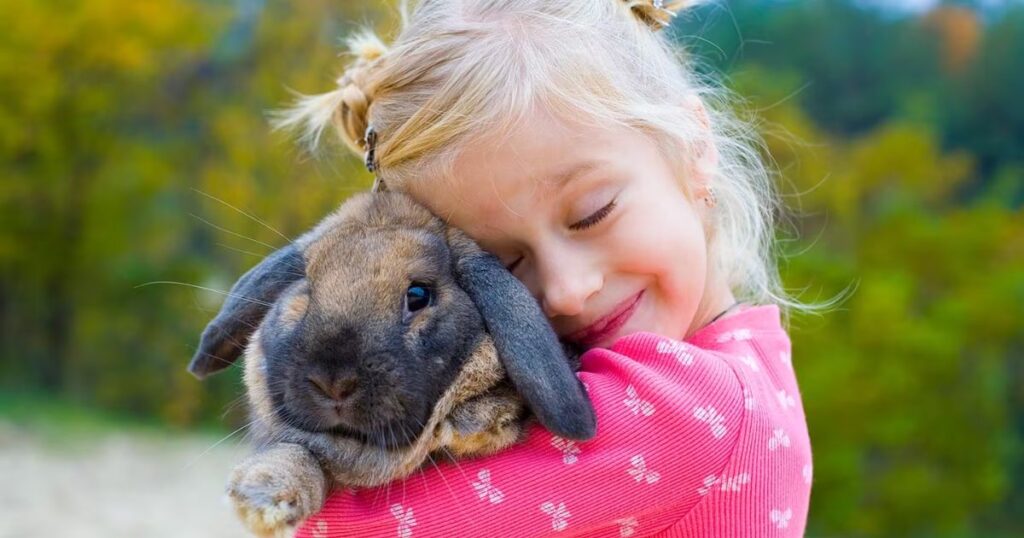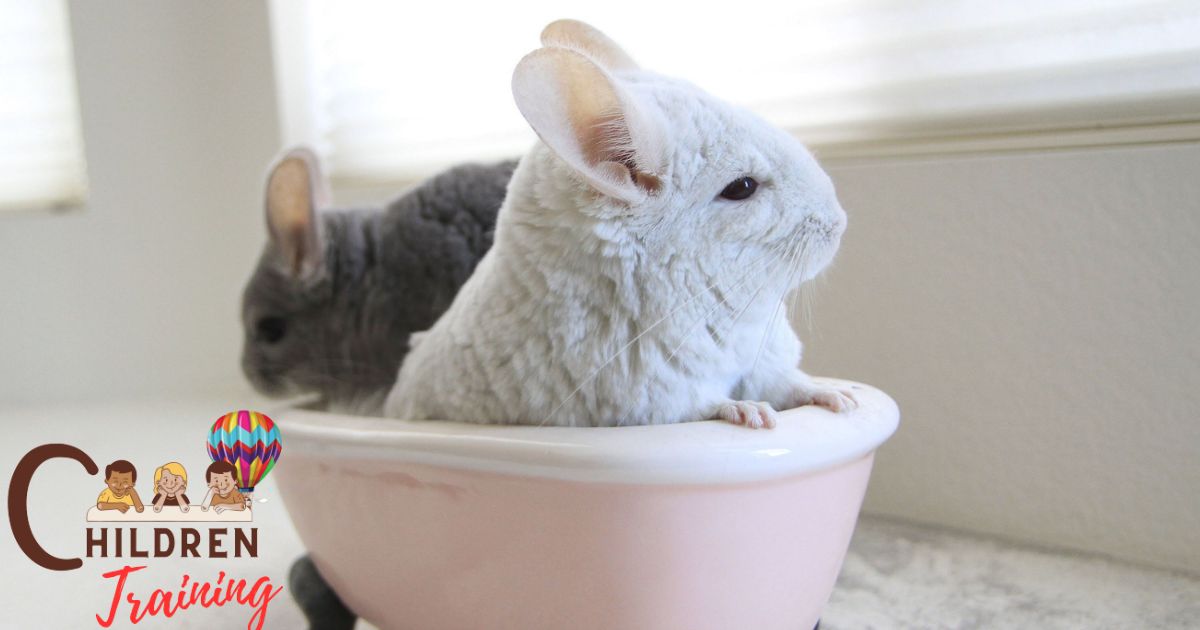Chinchillas are adorable and exotic pets known for their soft, luxurious fur and lively personalities. If you’re a chinchilla owner or considering adopting one, you may be wondering if it’s possible to potty train these small, furry creatures. In this comprehensive guide, we will explore the feasibility of potty training a chinchilla and provide you with all the essential information you need to understand their behavior, needs, and the potential for potty training. Whether you’re a novice chinchilla owner or a seasoned enthusiast, this article will shed light on the topic and help you foster a harmonious relationship with your chinchilla companion. So, let’s dive into the world of chinchilla potty training!
Understanding Chinchillas

Before delving into the intricacies of potty training, it’s crucial to have a comprehensive understanding of chinchillas and their unique characteristics. Chinchillas are small rodents that are native to the Andes Mountains in South America. These fascinating creatures have become increasingly popular as pets due to their adorable appearance and friendly nature.
Chinchilla Basics
Here are some fundamental facts about chinchillas:
- Lifespan: Chinchillas have a relatively long lifespan for a small rodent, typically living 10 to 20 years in captivity.
- Size: They are small animals, measuring about 9 to 15 inches in length.
- Fur: Chinchillas have incredibly dense and soft fur, which is one of their most distinctive features.
- Social Creatures: Chinchillas are social animals and tend to thrive in the company of other chinchillas.
- Chewers: Chinchillas have ever-growing teeth, so they need items to chew on to prevent dental issues.
- Nocturnal: They are primarily nocturnal, meaning they are most active during the night.
- Clean Animals: Chinchillas are known for being relatively clean animals, which is an essential trait when considering potty training.
Chinchilla Behavior
Understanding the behavior of chinchillas is crucial when it comes to potty training. Here are some key behavioral characteristics to keep in mind:
- Territorial: Chinchillas are territorial creatures, and they tend to mark their territory with urine and feces.
- Inquisitive: They are naturally inquisitive animals and enjoy exploring their environment.
- Stress-Sensitive: Chinchillas can become stressed easily, and stress can affect their behavior and health.
- Chewing Habits: Chinchillas love to chew on various objects to keep their teeth healthy.
- Cleanliness: Chinchillas are known for their cleanliness and often groom themselves.
Is Potty Training a Chinchilla Possible?
Now that we have a basic understanding of chinchillas, let’s address the big question: Can you potty train a chinchilla? The short answer is, yes, it is possible to potty train a chinchilla to some extent. However, it’s essential to manage your expectations and understand that chinchillas are not like cats or dogs when it comes to potty training.
The Challenges of Potty Training Chinchillas
Potty training a chinchilla can be challenging for several reasons:
- Territorial Behavior: Chinchillas are naturally territorial, and they mark their territory by urinating and defecating. This territorial behavior can make it difficult to train them to use a specific area for elimination.
- Small Bladder: Chinchillas have small bladders, which means they need to urinate frequently. This makes it challenging to predict when they will need to use the litter box.
- Nocturnal Activity: Chinchillas are most active at night, which can make it more challenging to supervise and train them during their active hours.
- Stress Sensitivity: Chinchillas are sensitive animals, and the stress of training might negatively affect their overall well-being.
The Potential for Potty Training
Despite the challenges, potty training a chinchilla is not impossible. Chinchillas are naturally clean animals, which works in your favor. Here are some steps and tips to help you potty train your chinchilla:
Choose the Right Litter Box
Select a small litter box that fits inside your chinchilla’s cage. Ensure it’s not too high, so your pet can easily access it. You can find appropriate chinchilla litter boxes at pet supply stores.
Choose the Right Litter
Chinchillas have sensitive respiratory systems, so it’s crucial to select a dust-free, non-toxic litter. Avoid clay or clumping litters, as they can be harmful if ingested.
Observe Your Chinchilla
Spend time observing your chinchilla’s bathroom habits. This will help you identify patterns and choose the right time to introduce the litter box.
Step 4: Place the Litter Box Strategically
Put the litter box in a corner of the cage where your chinchilla tends to eliminate. Chinchillas often choose a specific spot for this purpose.
Be Patient
Potty training a chinchilla takes time and patience. You may need to rearrange the litter box and cage setup a few times before your chinchilla starts using it consistently.
Positive Reinforcement
Whenever your chinchilla uses the litter box, offer positive reinforcement. You can use treats or verbal praise to reward the desired behavior.
Clean Regularly
Chinchillas are more likely to use a clean litter box. Clean the box daily to encourage your chinchilla to keep using it.
Remember that not all chinchillas will adapt to potty training, and even those that do may have occasional accidents. Being understanding and patient is essential.
Signs of Successful Potty Training
How can you tell if your chinchilla is successfully potty trained? Here are some signs to look for:
- Consistent Use of the Litter Box: If your chinchilla regularly uses the litter box, it’s a positive sign that potty training is working.
- Fewer Accidents: While occasional accidents can happen, successful potty training should lead to a reduction in accidents outside the litter box.
- No Territorial Marking: If your chinchilla stops marking its territory with urine and feces in the cage, this is a good indicator of successful training.
- Clean Fur and Paws: A well-potty trained chinchilla will have clean fur and paws, as they won’t walk through their waste.
- Reduced Odor: A litter-trained chinchilla’s cage will have reduced odor since most of their waste is contained in the litter box.
It’s important to remember that potty training can take time, and not all chinchillas will fully conform to it. Some chinchillas may always have occasional accidents, even if they are mostly litter trained.
Tips for Potty Training Success
To improve your chances of successfully potty training your chinchilla, consider the following tips:
Start Early
Begin potty training as early as possible. Younger chinchillas tend to adapt more readily to new habits.
Use Positive Reinforcement
Reward your chinchilla with treats and praise when they use the litter box correctly. This positive reinforcement can encourage them to continue the behavior.
Consistent Cleaning
Maintain the cleanliness of the cage and litter box. Chinchillas are more likely to use a clean area for elimination.
Patience is Key
Be patient and understanding. Chinchillas may not grasp potty training immediately, and accidents are part of the process.
Monitor Behavior
Keep a close eye on your chinchilla’s behavior, especially during the early stages of training. This will help you identify patterns and adapt your approach accordingly.
Adapt to Their Preferences
Pay attention to your chinchilla’s preferences when it comes to the litter box’s location and the type of litter they prefer.
Litter Box Training Chinchilla Playpen
In addition to training your chinchilla to use a litter box inside its cage, you can also create a chinchilla playpen where your pet can exercise and play while being encouraged to use a litter box. This approach can help limit the amount of time your chinchilla spends in its cage and promote good bathroom habits.
Creating a Chinchilla Playpen for Litter Training:
- Choose a Suitable Area: Select a safe, chinchilla-proof area in your home for the playpen. Make sure it’s free from hazards like electrical cords and chemicals.
- Set Up the Playpen: Use portable fencing or panels to create a confined space for your chinchilla. Ensure there’s enough room for exercise and a litter box.
- Place the Litter Box: Put a second litter box in the playpen and encourage your chinchilla to use it while they are outside of their cage.
- Supervise Playtime: When your chinchilla is in the playpen, closely supervise their behavior. This allows you to redirect them to the litter box if needed.
- Positive Reinforcement: Use positive reinforcement and treats to reward your chinchilla when they use the litter box in the playpen.
A chinchilla playpen can be a valuable tool for potty training and providing your pet with additional exercise and mental stimulation.
Common Potty Training Challenges
While potty training a chinchilla is possible, it’s important to be aware of potential challenges you may encounter during the process. Understanding these challenges can help you address them effectively.
Accidents
Chinchillas may still have accidents outside the litter box, even if they are mostly trained. Be prepared for occasional messes, especially during their active, nocturnal hours.
Territorial Marking
Chinchillas have a strong instinct to mark their territory. While litter training can reduce this behavior, it may not eliminate it entirely.
Stress-Related Accidents
Stress can lead to accidents, so be mindful of your chinchilla’s emotional well-being. Changes in their environment or routine can trigger stress-related accidents.
Multiple Chinchillas
If you have multiple chinchillas in one cage, potty training can be more challenging, as they may not always respect each other’s bathroom spaces.
Age-Related Issues
Older chinchillas may have a harder time adapting to new habits, including potty training. Start training as early as possible for the best results.
Health Concerns
If your chinchilla suddenly starts having accidents, it could be a sign of a health issue. Consult a veterinarian to rule out any medical problems.
Potty Training Do’s and Don’ts
To help you navigate the world of chinchilla potty training, here’s a handy list of do’s and don’ts:
Do’s:
- Do start training early: The earlier you begin, the better the chances of success.
- Do use positive reinforcement: Reward your chinchilla with treats and praise when they use the litter box.
- Do keep the cage clean: Regular cleaning encourages your chinchilla to use the litter box.
- Do monitor behavior: Keep a close eye on your chinchilla’s habits to identify patterns.
- Do adapt to preferences: Pay attention to your chinchilla’s preferences for the litter box’s location and litter type.
Don’ts:
- Don’t expect perfection: Accidents will happen, especially during the initial training stages.
- Don’t use harsh punishments: Avoid scolding or punishment for accidents, as it can stress your chinchilla.
- Don’t give up too soon: Potty training takes time and patience, so don’t abandon the effort too quickly.
- Don’t ignore health concerns: If your chinchilla’s bathroom habits suddenly change, consult a veterinarian.
Chinchilla Cage Setup for Potty Training
Creating the right environment in your chinchilla’s cage is crucial for successful potty training. Here are some tips for setting up the ideal chinchilla cage for potty training, along with insights into “Can You Potty Train A Bearded Dragon.”
Use the Right Cage Size
Select an appropriately sized cage for your chinchilla. It should provide enough space for your pet to move around comfortably without feeling cramped.
Choose the Right Cage Material
Opt for a cage with a solid, non-wire bottom to prevent your chinchilla from walking on its waste and developing foot problems.
Position the Litter Box
Place the litter box in a corner of the cage where your chinchilla typically eliminates. Chinchillas often have a preferred spot for this purpose.
Provide Chew Toys
Chinchillas love to chew, so ensure you provide a variety of safe, chewable toys to keep them occupied and prevent boredom-related accidents.
Maintain a Clean Cage
Regularly clean the cage, including the litter box, to encourage your chinchilla to use it. A clean environment is essential for successful potty training.
FAQs
Can You Potty Train a Chinchilla?
Yes, it is possible to potty train a chinchilla to some extent.
How do I potty train my chinchilla?
Use a litter box, observe their habits, and provide positive reinforcement.
What challenges might I face when potty training a chinchilla?
Challenges include territorial marking and stress-related accidents.
Conclusion
Potty training a chinchilla is a feasible but challenging task that requires patience, consistency, and understanding. Chinchillas are naturally clean animals, which works in your favor when attempting to establish good bathroom habits. While you may not achieve perfect potty training results, your efforts can significantly reduce accidents and create a cleaner, more pleasant environment for both you and your beloved chinchilla.
Understanding your chinchilla’s behavior, using positive reinforcement, and maintaining a clean living space are all essential elements in the potty training process. Additionally, creating a chinchilla playpen can help reinforce litter training and provide your pet with exercise and enrichment.
Remember that every chinchilla is unique, and their progress in potty training may vary. Be patient, adapt to their preferences, and consult a veterinarian if you notice sudden changes in their bathroom habits, as it could be a sign of a health issue.
In the end, successful potty training can lead to a happier and healthier relationship between you and your furry friend. Enjoy the journey of training and bonding with your chinchilla, and relish the joy that these charming pets bring to your life.










